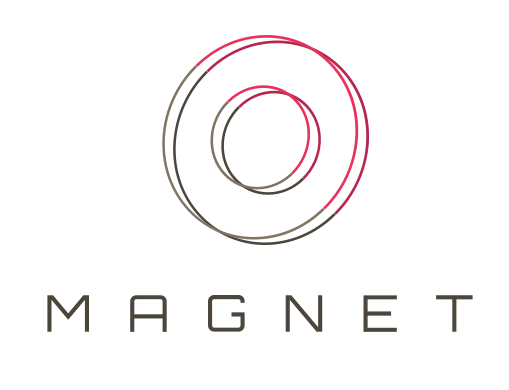
The main objective of the MAGNET (Migrant Acceleration for Growth – Network for Entrepreneurship Training) project is the establishment of a Europe-wide network of organisations working in the field of migrant entrepreneurship support at the practical, political as well as scientific level. The MAGNET project is co-funded under the European Union’s COSME programme, the Programme for Small and Medium-Sized Enterprises.
There is a growing body of evidence that (potential) migrant entrepreneurs will require a different set of core competences to successfully set up and run their businesses in a changing society with changing economic and labour market situations. This has major implications for the transformation of Migrant Entrepreneurship Support and Training systems. Therefore, the main objective of the MAGNET project is to promote the creation, improvement, further development and broader dissemination of already existing support schemes for migrant entrepreneurs. This is decisive for future European labour markets, since being self-employed and building successful ventures (both commercial and social enterprises) is an important strategy to improve labour market participation of migrants, who face a multitude of challenges in terms of labour market integration.

The MAGNET Consortium:
- Danube University Krems, Department Migration and Globalization, coordinator, Austria
- SINGA Deutschland, Germany
- The Microfinance Centre, Poland
- The Entrepreneurial Refugee Network, United Kingdom
- Delitelabs, The Netherlands
- Technology and Human Resources Institute, Greece
- VUZF University of Finance, Business and Entrepreneurship, Bulgaria
- European University Continuing Education Network, Belgium
MAGNET’s main activities are:
- Development and pilot-testing a training-of-trainers peer-learning programme for people active in the field of migrant entrepreneurship support (Migrant Entrepreneurship Academy)
- Development of an Open Toolkit for Migrant Entrepreneurship Support on the basis of good-practice analysis and improvement broad and
- Promotion and coordination of holistic networking activities in the migrant entrepreneurship support field, both on regional, national and transnational level
Details
| Projektzeitraum | 01.10.2017 - 30.09.2020 |
|---|---|
| Fördergeber | EU |
| Förderprogramm |
COSME

|
| Department | |
| Projektverantwortung (Universität für Weiterbildung Krems) | Mag. Mag. Isabella Skrivanek, PhD |
| Projektmitarbeit | |
| Projektwebsite | https://migrantacceleration.eu/ |
Publikationen
Skrivanek, I. (2022). Inklusive Zulassungsprozesse für MigrantInnen durch (mehr) Validierung? Erfahrungen aus dem Lehrgang Migrant Entrepreneurship Support. In: Fellner, Magdalena; Pausits, Attila; Pfeffer, Thomas; Oppl, Stefan, Validierung und Anerkennung non-formal und informell erworbener Kompetenzen an Hochschulen. Rahmenbedingungen, Erfahrungen und Herausforderungen: 107-115, Waxmann, Münster, New York